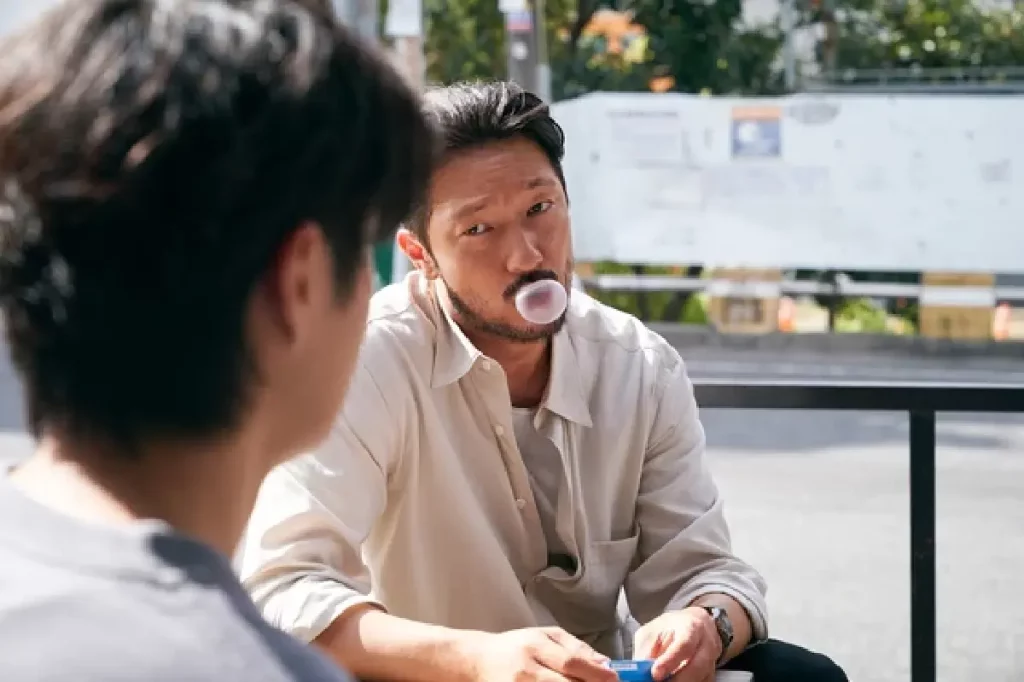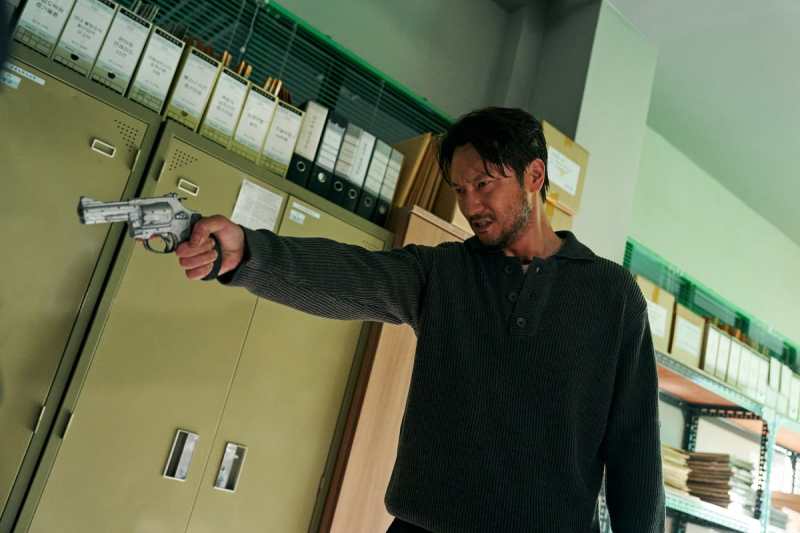[A Killer Paradox Review Netflix] Serial killer in real life in superhero style.

A Killer Paradox
Summary
It’s like a drama-mystery series with a touch of supernatural. It’s surprisingly fun, almost in a superhero-real-life kind of way. Although it can feel a bit exaggerated with the protagonist’s luck that keeps him alive throughout. The murder scenes lean more towards dark comedy but still pack a punch with high intensity. There are deep, intricate character arcs, and it tries to explore whether the justice portrayed in the story is indeed true or not. The answer comes in the dramatic, satisfying conclusion that ties everything up neatly.
Overall
7/10User Review
( votes)Pros
- A real-life drama-mystery with a mix of murder and supernatural, presented in a superheroic fashion.
- Explores the intersection of morality and justice within a legal framework.
- Intense and gruesome scenes with a high maturity rating.
Cons
- Relies on luck to find simple solutions throughout the story.
- Virtually lacks any twists to make it intriguing.
ADBRO
A Killer Paradox The Korean series on Netflix, consisting of 8 episodes, revolves around a college student who accidentally kills someone, but the victim turns out to be a serial killer. His stroke of luck seemingly makes him easily escape the situation, but his past sins come back to haunt him as he gets entangled in a web of continuous murders. With a bitter past, a detective pursues him relentlessly.
A Killer Paradox Review
(There are some spoilers in the content, but the crucial parts are not revealed.)

The series is adapted from a webtoon and directed by Lee Chang-Hee , the second installment after “Strangers From Hell ,” which gained recognition for its twisted portrayal of humans turning into murderers. In this series, it follows a similar theme but introduces supernatural elements related to the protagonist’s power. Initially, it may not be clear what it is, manifesting as a creepy sensation at the back of the neck, seemingly prompting a desire to kill. The storyline takes a dark comedy approach, playing with the irony of the protagonist having to kill people driven by external stimuli, and there’s a twist of luck that consistently helps the protagonist destroy evidence after each killing. It incorporates unexpected and humorous elements, like a coincidental fly flying in front of a security camera at the right moment. This distinguishes it from the previous series, as it doesn’t heavily focus on pressure or tension, but still carries an underlying sense of horror, mixed with the protagonist’s bleak life drama as he reluctantly transforms into a continuous murderer.

As the story reaches its midpoint, new characters are introduced to lead the protagonist out of his predicament. The narrative takes a turn towards a superhero genre within the real world, akin to films like “Unbreakable” and “Split” by director M. Night Shyamalan. The new appearance of the protagonist becomes more rugged, accompanied by a supportive partner who assists in easily carrying out the killings. The series explains his supernatural abilities in a way that attempts to make them believable, even if it veers towards being overly fantastical.
At this point, viewers are likely enjoying the ride with this idea, wondering where it will lead. The series expands further by introducing antagonists with similar life paths but more cunning and ruthless, lacking any supernatural powers. just cunning individuals who rely on instincts. This sets apart from the protagonist, raising the central question of whether actions are any different and if it reflects true justice.
 The series also features another protagonist, a detective who tirelessly pursues the main character throughout. His role as a detective isn’t just about solving ordinary cases, but it involves deep familial wounds that have driven him to become a cop, determined to track down this villain. He stands as the moral center of the story, representing the law but unable to use it against these criminals. His involvement in such cases where he must protect the wicked makes him seem as if he’s constantly trying to suppress his emotions, preventing himself from becoming a vigilante destroying the law. The actors portray this emotional struggle exceptionally well, making it palpable and explosive throughout the series.
The series also features another protagonist, a detective who tirelessly pursues the main character throughout. His role as a detective isn’t just about solving ordinary cases, but it involves deep familial wounds that have driven him to become a cop, determined to track down this villain. He stands as the moral center of the story, representing the law but unable to use it against these criminals. His involvement in such cases where he must protect the wicked makes him seem as if he’s constantly trying to suppress his emotions, preventing himself from becoming a vigilante destroying the law. The actors portray this emotional struggle exceptionally well, making it palpable and explosive throughout the series.

The series tells a story from beginning to end and is consistently entertaining. However, it heavily relies on the protagonist’s luck to solve crises, making it seem like the solution always conveniently falls into place. It feels too easy—no matter what, the protagonist always survives, and the police chasing them always seem to make mistakes or fall short, which doesn’t really challenge the plot’s ideas or offer a satisfying resolution to the problems. Initially, it’s all just pure comedy, but later on, it gets a bit more serious.
Another small downside is that the story often doesn’t progress sequentially, but instead jumps ahead to the future of the characters and then backtracks to explain what happened. This can lead to some confusion in the early episodes. Also, it tries to narrate the flashbacks of various characters’ lives in lengthy segments, aiming to provide insight into each character’s background, but it doesn’t always achieve the desired effect.
The series concludes in a clear and satisfying manner in this season, with an open-ended final scene that allows for future continuation. This is reminiscent of serialized crime dramas like Dexter.
It’s like a drama-mystery series with a touch of supernatural. It’s surprisingly fun, almost in a superhero-real-life kind of way. Although it can feel a bit exaggerated with the protagonist’s luck that keeps him alive throughout. The murder scenes lean more towards dark comedy but still pack a punch with high intensity. There are deep, intricate character arcs, and it tries to explore whether the justice portrayed in the story is indeed true or not. The answer comes in the dramatic, satisfying conclusion that ties everything up neatly.


